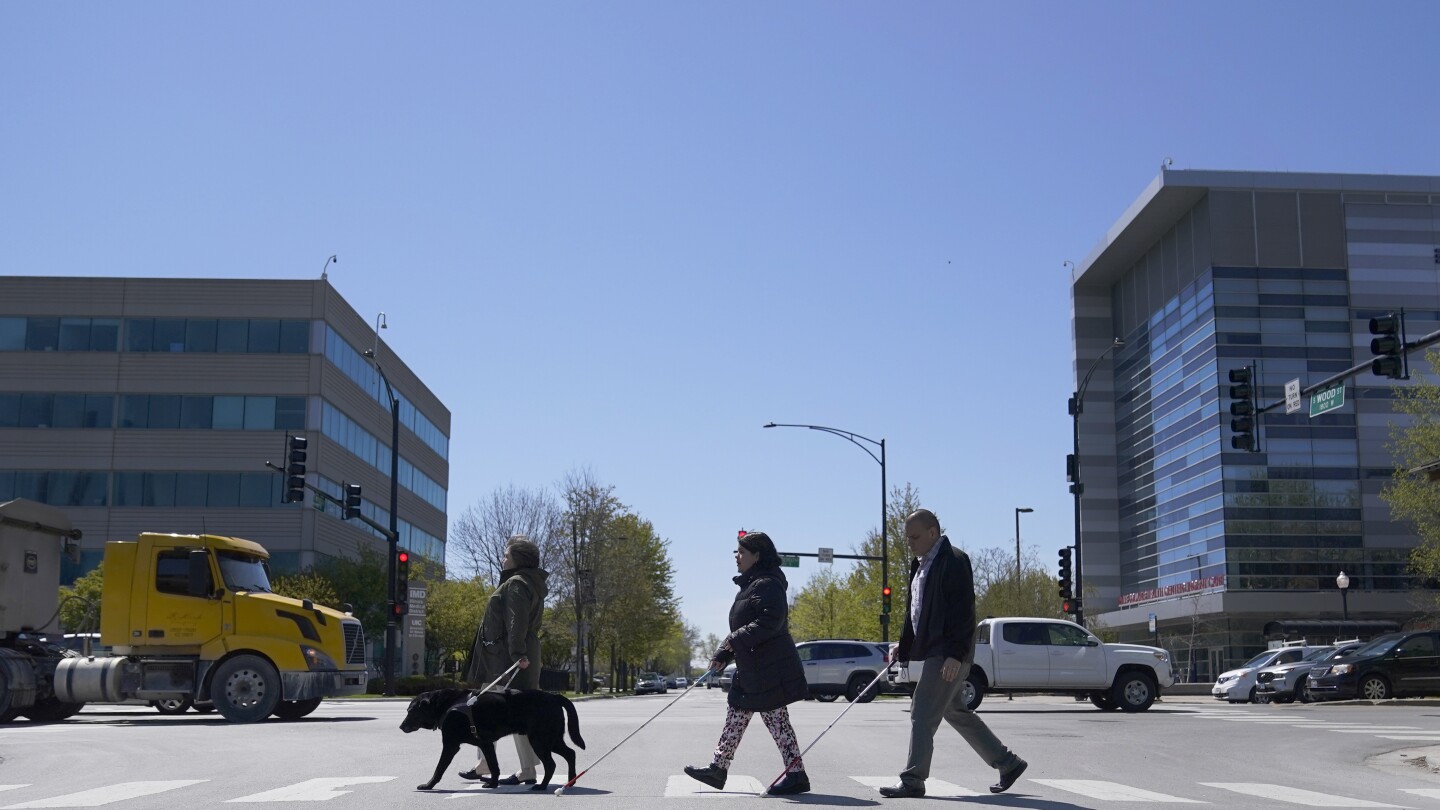The U.S. Census Bureau on Tuesday dropped plans to change how it asks about disabilities after facing growing backlash.
Disability advocates argued that proposed changes to the disability question on the American Community Survey would artificially reduce the number of people with disabilities by more than 40 percent, limiting their access to important resources like housing, schools and program benefits, and that they were not properly consulted on such a major overhaul.
“It’s good news. It’s good news. It’s good news,” said Scott Landes, an associate professor of sociology at Syracuse University who is blind. “They’ve gotten the message that we need to get involved.”
Census Bureau Director Robert Santos said the Census Bureau plans to meet with advocates for the disability community to determine whether it will keep the current question about disability in the 2025 American Community Survey while determining what changes to the question need to better capture the range of disabilities.
“We continue to work with stakeholders and the public to better understand data needs on disability and evaluate what revisions are needed across federal statistical systems to better address those needs,” Santos said in a blog post.
The American Community Survey is the most comprehensive look at American life, including commute times, internet access, family life, income, education level, disabilities, and military service.
Existing questions ask respondents to answer “yes” or “no” if they have difficulty or “very difficulty” seeing even with glasses; are blind; are deaf; have a physical, mental, or emotional condition that makes it difficult to concentrate, remember, or make decisions; have difficulty walking, climbing stairs, dressing, or bathing; or have difficulty performing daily tasks. If the answer is “yes,” they are considered disabled.
The proposed changes, which are in line with international standards, would allow respondents to answer almost the same questions with four options: “no difficulty,” “some difficulty,” “very difficulty” or “not at all.” Anyone who answers “not at all” or “very difficulty” for any task or function would be considered disabled. The proposed changes would also add a question about whether respondents have communication difficulties.
Supporters of the proposed changes said the amendments would provide more nuanced data and give officials more information about disabilities to inform how they provide services and resources.
In a pilot study, the percentage of respondents defined as having a disability increased from 13.9% under the current question to 8.1% under the proposed change. When the definition was broadened to include “some difficulty,” the percentage defined as having a disability increased to 31.7%.
The proposed change to the disability question is one of several adjustments to the American Community Survey that the Census Bureau plans to submit for approval to the Office of Management and Budget this year. As part of that process, the Census Bureau solicited feedback from the public and received more than 12,000 responses, the majority of which expressed concerns about the change to the disability question.
Advocates said Tuesday they will focus on working with the health department to craft questions that encompass the range of barriers faced by many people suffering from long COVID-19, including mental illness, developmental disabilities and chronic conditions.
“This is a win for our community, but we must remain committed to our long-term goal of developing better disability questions that are more equitable and inclusive for our entire community,” BonnieLynn Swenor, director of the Johns Hopkins University Center for Disability and Health Research, said in an email.
___
Follow Mike Schneider on X, formerly known as Twitter: Mike Schneider.

